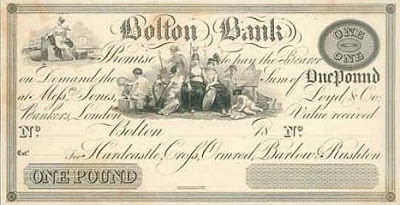The Play's the Thing
 'No great artist sees things as they really are. If he did, he would cease to be an artist.'
'No great artist sees things as they really are. If he did, he would cease to be an artist.'So spoke Oscar Wilde, a prominent representative of the Aesthetics movement and defender of the 'art for art's sake' philosophy. Aesthetics embraced this idea as a response to utilitarian social philosophies and the ugliness and practicality that was symptomatic of the Industrial age, there near the end of the Victorian era. 'Art for art's sake' declares that art has no function other than to exist as a representation of the artist's self-expression - it just IS. Art can and should exist only as art; it has no moral justification, no responsibility to teach. (There's a related concept from the Greek thinkers: that something is 'autotelic', or 'complete in itself'.)
Critics of the movement insist that art must attempt to communicate something, to connect individuals if it is to have any value, and that 'pure art' solidifies the social divide between classes and keeps art available only for the very rich.
(Follow the link in the play title below for a synopsis if you are not familiar with the plot.)
What do you think: does The Importance of Being Earnest exist solely as a self-contained work of literary art, or does it also hint at the idea that art 'suffers' for being contained in a vacuum? (After all, what is a play without an audience? Especially a comedy?) Consider this: the play opens with the discovery that Jack has managed to insulate himself into two separate, artistic 'vacuums' - his life as Jack in the city, and living as Ernest in the country, and the chaos of the plot results from a mixing of the two individual entities. Those two lives are only possible because Jack is very rich - but everyone can see and experience the silliness that comes from trying to maintain separate existences.
All of Jack's 'art' comes crashing together and mixing up in the end, leaving the play as a whole as the standing work of art. And what then does the play say to us?
Take a look at some of the other performers. Wilde's play arguably makes no moral judgement of its characters; it presents them in their entirety and lets the audience laugh at their individual 'inner-centeredness'. Algy, for example, would agree that art exists simply to exist, and Cecily's diary could be considered a work of Aesthetic art in that it has no purpose other than a method of self-expression.
So, 'art for art's sake' or message for the masses about becoming to altogether TOO complete in onself? Come experience the play, and let us know what you think!
* * * * *
Talk About It
- What's your view? Would you consider yourself an 'Aesthetic', and say that art should always be celebrated because it is art? Or are you more interested in interpretations, in finding a 'message' or being taught something by the art you observe?
- Think about examples we see in our day. A fairly loud discussion has been raging about the placement of the 'Fearless Girl' statue that was set in context by its proximity to the 'Charging Bull' statue on Wall Street in New York. What is the artistic value of the statue if the girl is NOT facing down a fierce beast? Does the juxtaposition of the two figures create an entirely new piece of art, or should the wishes of the sculptor of the Bull in letting his piece stand alone be upheld? What other similar questions have you experienced with music, painting, books, dance, and other forms of art?
* * * * *
The Importance of Being Earnest by Oscar Wilde
Directed by Larry West
June 15-July 1
For tickets and more information go to: http://www.pinnacleactingcompany.org/


Comments
Post a Comment